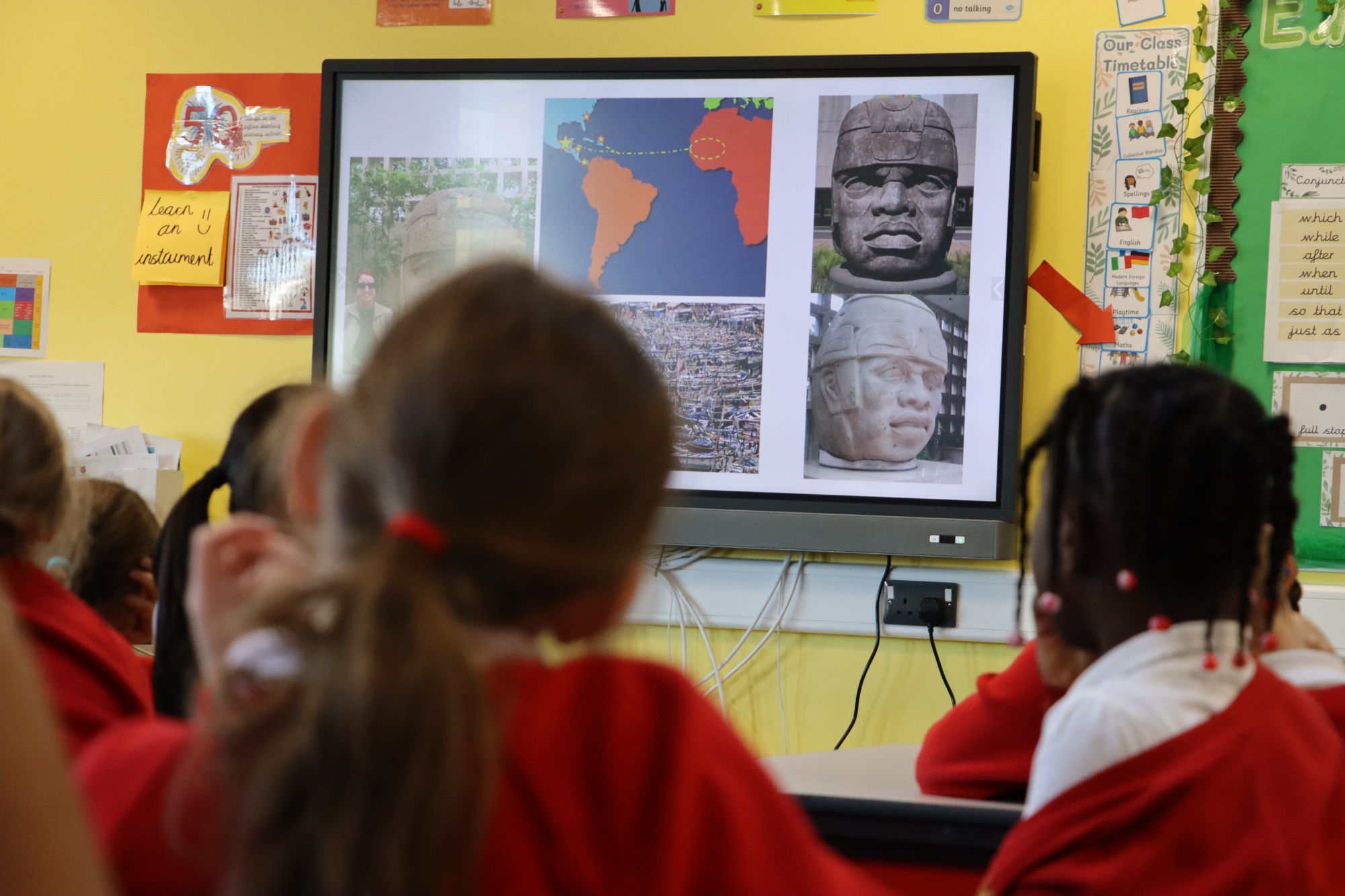History
Subject Leader: Miss K Hazel - hazelk@saintgeorgescofe.kent.sch.uk
A high-quality history education will help pupils gain a coherent knowledge and understanding of Britain’s past and that of the wider world. It should inspire pupils’ curiosity to know more about the past. Teaching should equip pupils to ask perceptive questions, think critically, weigh evidence, sift arguments, and develop perspective and judgement. History helps pupils to understand the complexity of people’s lives, the process of change, the diversity of societies and relationships between different groups, as well as their own identity and the challenges of their time.
Intent
At Saint George’s Primary Phase, we aim for History to be understood, enjoyed, and celebrated. The History curriculum at Saint George’s makes use of resources within the wider local area, allowing children to develop an understanding of the rich History of their locality and the wider world. Topics are informed by the national curriculum and linked to the Quigley Essential Curriculum, as well as to the local area. The History curriculum at Saint George’s is planned and structured to ensure that the school’s approaches are informed by current pedagogy. In line with the national curriculum 2014 and Quigley’s Essentials Curriculum, at Saint George’s we aim for all pupils to enhance their ability to think critically about History and communicate ideas confidently; gain a passion for History and an enthusiastic engagement in learning, which develops their sense of curiosity about the past and their understanding of how and why people interpret the past in different ways and begin to gain an excellent knowledge and understanding of people, events and contexts from a range of historical periods and of historical concepts and processes.
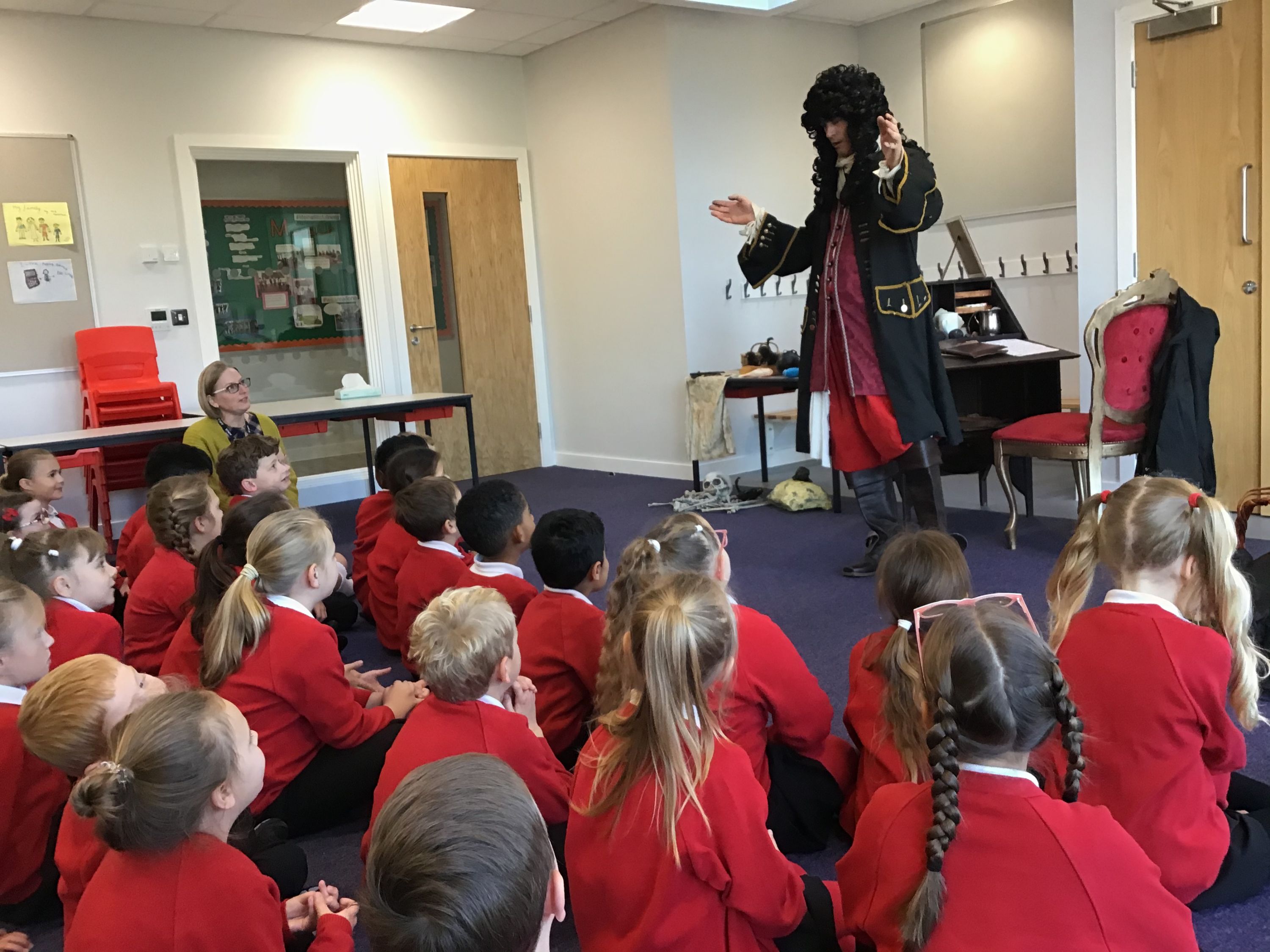
Implementation
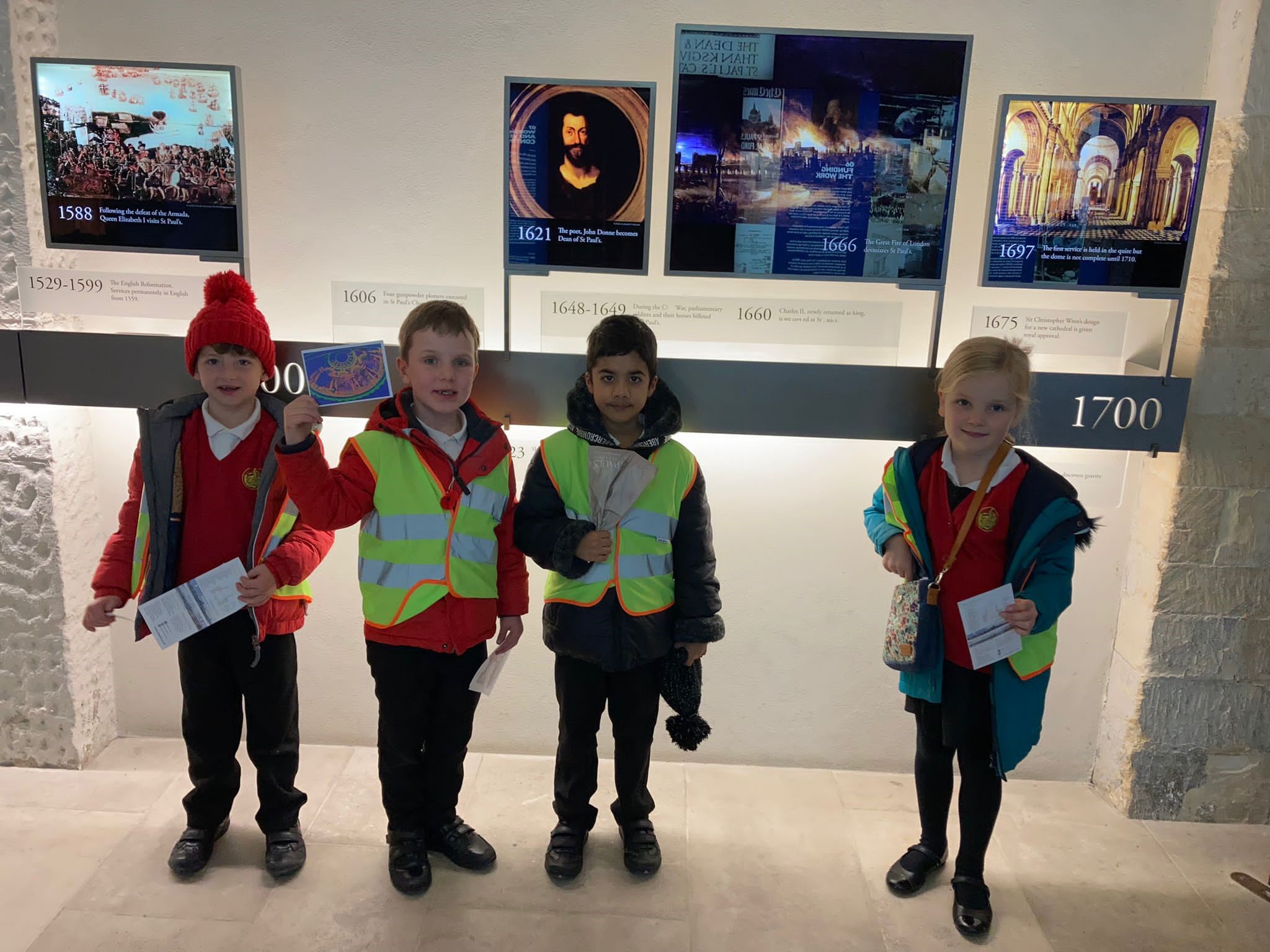
History is taught across the school to ensure that all children deepen their understanding of historical topics. Teachers have identified the key knowledge and skills of each topic in liaison with the secondary subject leaders, and consideration has been given to ensure progression across topics throughout each year group. By the end of year six, children will have a breadth of knowledge about key periods in History, from the Stone Age to the present day. They will be able to draw comparisons and make connections between different time periods and their own lives. Cross-curricular outcomes in History are planned for, with links between the History curriculum and English lessons.
To enhance children’s learning and understanding, the local area is utilised, and opportunities for learning outside the classroom are used and encouraged by class teachers. Every year group will carry out a History Day to enrich the children’s understanding of a particular topic, allowing them the opportunity to immerse themselves into the cultural practises of that period. Within each year group area, children have access to a historical timeline, which can be accessed independently by the children to develop their understanding of chronology.
Planning is informed by both the national curriculum and Quigley’s Essentials Curriculum. Outcomes of work are regularly monitored to ensure that they reflect a sound understanding of the key identified knowledge. The Early Years Foundation Stage (EYFS) curriculum follows the guidance which aims for all children in Reception to cover the strand ‘Past and Present’ along with ‘People, Culture and Communities’ by the end of the academic year.
Impact
Outcomes in topic and literacy books show a range of historical objectives being taught. Children are encouraged to reflect on what they have learnt throughout the topic, and how it relates to other periods in History. In History lessons, teachers place emphasis on analytical thinking and questioning which helps pupils to infer information from historical sources and develop critical thinking and curiosity. In turn, this enhances their abilities to sift through information and form their own judgements and arguments.
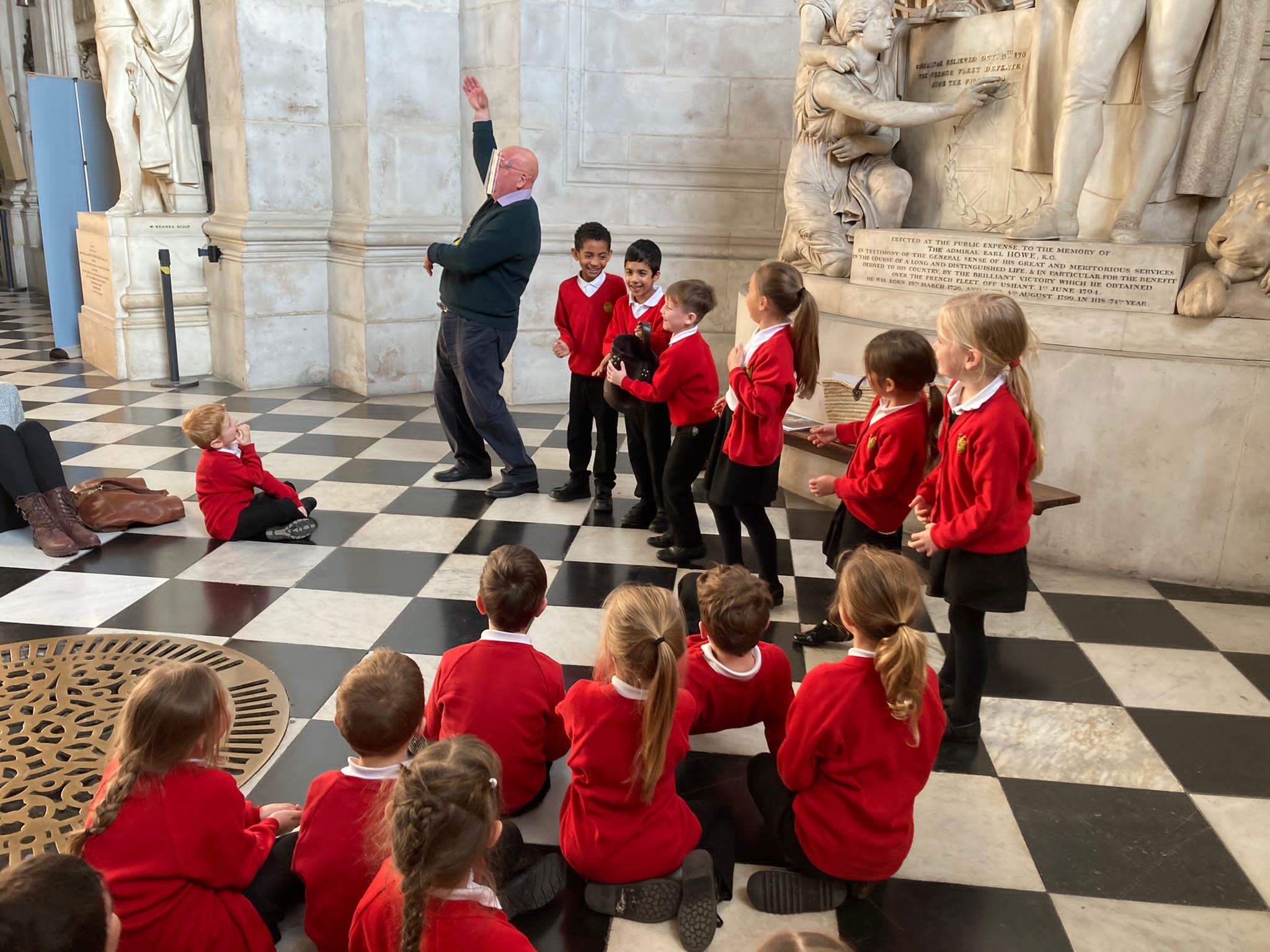
History at Early Years Foundation Stage (EYFS)
History is a record of what happened in the past and why. Our children learn about significant events and people and their influence on life today.
Within the EYFS children begin to learn that as they grow up, they are increasingly able to do more things for themselves independently. This emerging knowledge and understanding can be used to explore crucial early historical skills.
Historical understanding can be used to extend the children’s learning and understanding of themselves and the world around them. During their time in EYFS, children will be increasingly aware of the changes in routines during different times of the day and seasons of the year. These changes in times have an impact on what activities they can do (sleep, eat, play, home, holidays etc) as well as what they wear and what they celebrate. Children will also spend time thinking about how they change as they grow, as well as past and present experiences.
Children often dress up and engage in role-play to enhance their learning. This usually links to the topic at the time in the class. The children in EYFS often learn and understand History by talking about the very recent past. They begin to use language like ‘yesterday’ and ‘last week’.
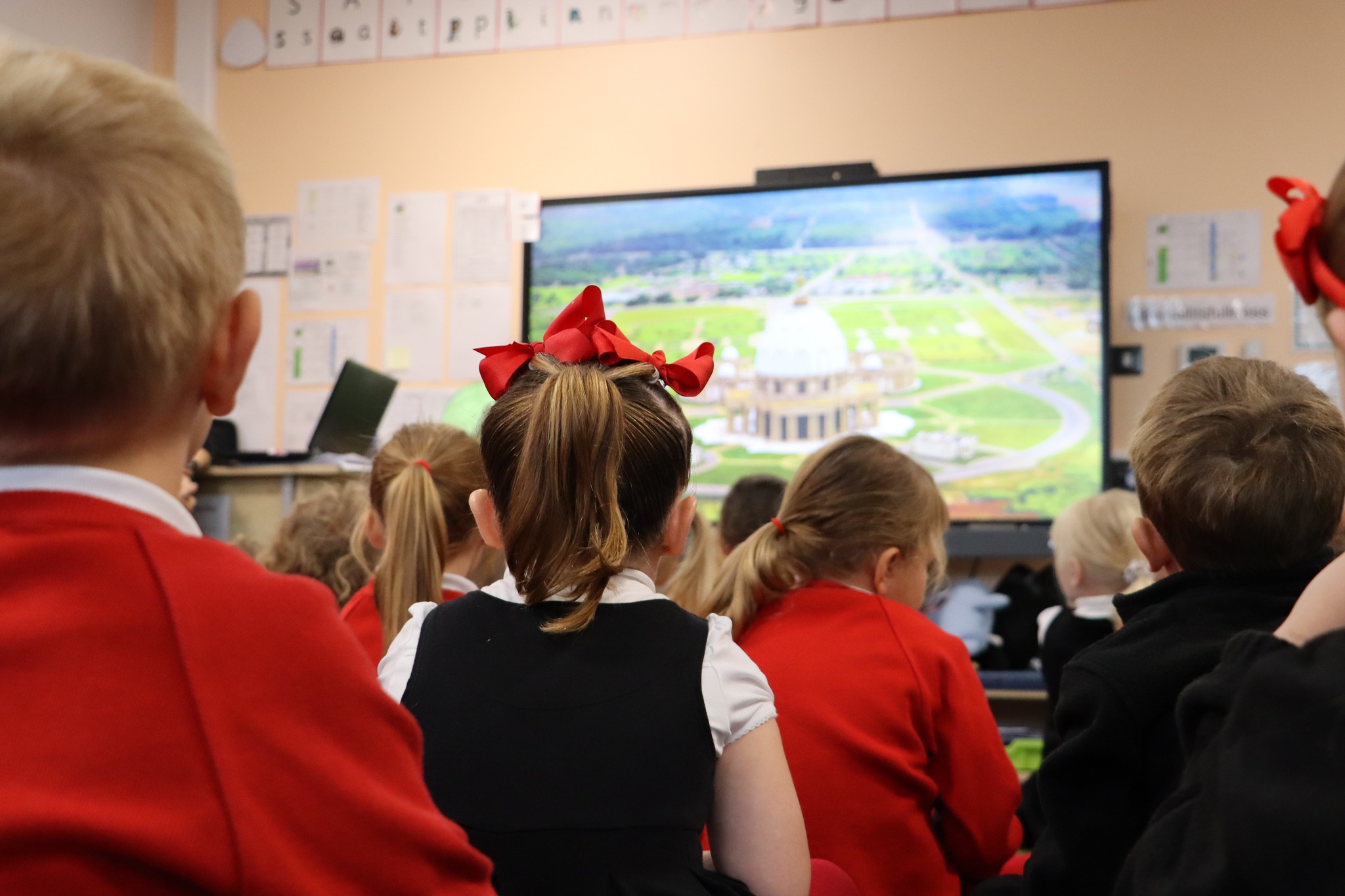
History at Key Stage 1 (KS1)
Pupils should develop an awareness of the past, using common words and phrases relating to the passing of time. They should know where the people and events they study fit within a chronological framework and identify similarities and differences between ways of life in different periods. They should use a wide vocabulary of everyday historical terms. They should ask and answer questions, choosing and using parts of stories and other sources to show that they know and understand key features of events. They should understand some of the ways in which we find out about the past and identify different ways in which it is represented.
In planning to ensure the progression described above through teaching about the people, events and changes outlined below, teachers are often introducing pupils to historical periods that they will study more fully at key stages 2 and 3.
Pupils should be taught about:
- Changes within living memory. Where appropriate, these should be used to reveal aspects of change in national life
- Events beyond living memory that are significant nationally or globally [for example, the Great Fire of London, the first aeroplane flight or events commemorated through festivals or anniversaries]
- The lives of significant individuals in the past who have contributed to national and international achievements. Some should be used to compare aspects of life in different periods. For example, Elizabeth I and Queen Victoria, Christopher Columbus and Neil Armstrong, William Caxton and Tim Berners-Lee, Pieter Bruegel the Elder and LS Lowry, Rosa Parks and Emily Davison, Mary Seacole and/or Florence Nightingale and Edith Cavell.
- Significant historical events, people and places in their own locality.
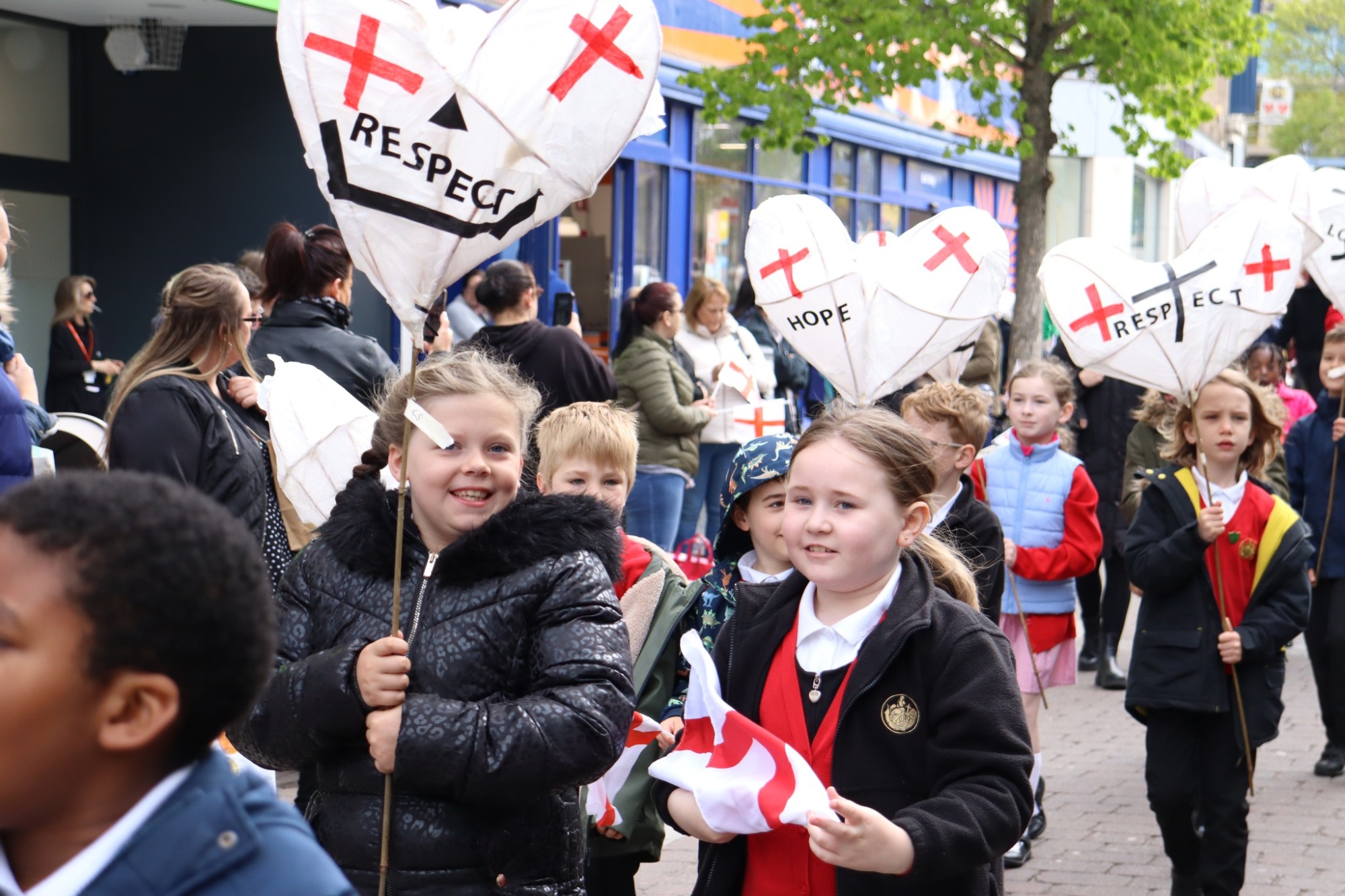
Programme of Study
| Terms | Topics |
|---|---|
|
Terms 1 & 2 |
Significant Figures - Florence Nightingale (Weeks 4 & 5) Significant Events - The Gunpowder Plot (Weeks 6 & 7) Significant Events - The First Flight (Weeks 11 & 12) |
|
Terms 3 & 4 |
Significant Figures - Rosa Parks (Weeks 4 & 5) Significant Events - The Great Fire of London (Weeks 6 & 7) Significant Events - The First World War (Weeks 11 & 12) |
|
Terms 5 & 6 |
Significant Figures - Neil Armstrong (Weeks 4 & 5) Significant Events - The Moon Landing (Weeks 6 & 7) Significant Events - The Battle of Hastings (Weeks 11 & 12) |
History at Key Stage 2 (KS2)
Pupils should continue to develop a chronologically secure knowledge and understanding of British, local and world history, establishing clear narratives within and across the periods they study. They should note connections, contrasts and trends over time and develop the appropriate use of historical terms. They should regularly address and sometimes devise historically valid questions about change, cause, similarity and difference, and significance. They should construct informed responses that involve thoughtful selection and organisation of relevant historical information. They should understand how our knowledge of the past is constructed from a range of sources.
In planning to ensure the progression described above through teaching the British, local and world history outlined below, teachers should combine overview and depth studies to help pupils understand both the long arc of development and the complexity of specific aspects of the content.
Programme of Study
| Terms | Topics |
|---|---|
|
Terms 1 & 2 |
Significant Events - The Stone Age to The Iron Age (Weeks 4, 5, 6, 10, 11 and 12) |
|
Terms 3 & 4 |
Significant Civilisations - The Vikings (Weeks 4, 5 & 6) Significant Civilisations - The Anglo-Saxons (Weeks 10, 11 & 12) |
|
Terms 5 & 6 |
Significant Civilisations - The Romans (Weeks 4, 5 & 6) Significant Civilisations - The Egyptians (Weeks 10, 11 & 12) |
Progression
We develop our pupil’s History understanding through essential skills; growing their depth of knowledge year after year. We are able to monitor their progress and allocate extra support and adaptations to the curriculum for pupils to maintain a strong History education.
SEND Information
We ensure that SEND and disadvantaged children are given the necessary support in class to fully access the History Curriculum and equal opportunities are given for all to be confident in approaching any problem within the world around them.

